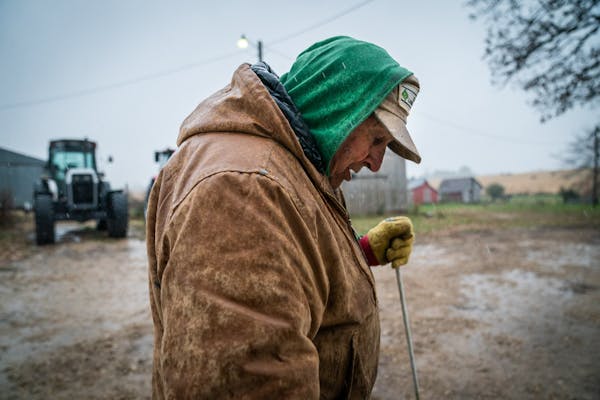ROCHESTER – Expressing "deep concern" about the COVID-19 situation in Minnesota, the White House's top adviser on the virus warned Saturday that there is no geography safe from it and implored Minnesotans to be more vigilant about preventive measures.
"Living in a rural area or being a farmer in a rural area does not protect you at this point from COVID," said Dr. Deborah Birx, who held a news conference after meeting with Gov. Tim Walz and other state and local officials at Rochester Community and Technical College.
"It's among all of you and you can't see it; you don't know it's there," Birx said. "A family member could easily have the virus."
Minnesota currently ranks 19th in the country in number of cases, "but it's rising," Birx said. "We have deep concern about Minnesota at this moment."
Positive cases are escalating faster than increases in testing, she said.
Asked whether she fears what will happen during the cold days of January, Birx said she hasn't even started thinking about January. "We're just trying to get through a very difficult November and December," she said. "If we move our summer behavior indoors, we will continue to spread the virus."
In Southern states, cases skyrocketed over the summer when the weather got hot and people moved their gatherings indoors for air conditioning, she said.
To control the spread of the virus, most gatherings, including weddings and funerals, should be avoided, the adviser warned. "This outbreak is driven by our behaviors," she said. "There is constant and unrelenting community spread that together — together! — we can stop."
Despite lingering skepticism among some about the value of masks, studies of salon workers and airplane passengers have shown clear scientific evidence that masks prevent the virus' spread, Birx said. On one overseas flight, eight passengers who had been tested before boarding were later found positive, she said. But because everybody wore masks throughout the flight, there was no secondary spread.
"We can change our future — but it does take all of us," Birx cautioned. "Don't go to that party; don't take that mask off."
She emphasized the importance of increasing testing, especially "on the front end" — people who show no symptoms of COVID but may nevertheless be contagious. Many of those with no symptoms or only mild ones are between the ages of 18 and 35, she said, and some are leery of being tested for fear of how members of their households or sports teams would view a positive result.
Birx has spent about 60 % of her time on the road in recent months, she said, traveling to rural and urban areas, visiting 27 universities in almost 40 states. At Boston University, students are tested weekly, and those who test positive are isolated and quarantined, she said. Because of the precautions, the number of cases there is much lower — five to seven new cases a day — than in schools of comparable size.
On the positive side, Birx said, people can feel safe going into stores if customers are masked. They can gather with family and friends outside, go on walks and runs. Restaurants are probably safe if tables are widely spaced, if servers wear masks and if customers wear masks when getting up from their tables, she said.
To enforce social distancing, she noted, many colleges have put red Xs showing where people can't sit. But she visited one that instead placed green dots where it was OK to sit.
"It was a very different feeling," she said. "It was like, oh, there are things I can do!"
Katy Read • 612-673-4583

Marijuana's path to legality in Minnesota: A timeline

Minnesota to close state park on Iron Range, turn it back into a mine
U.S. Steel won't get exception to pollution rules that protect wild rice, MPCA says

Taste of Minnesota to be enjoyed on the ground and in the air this year

